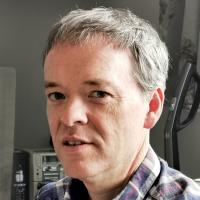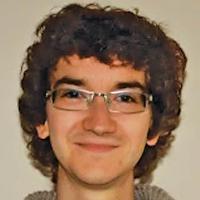This project seeks to provide interdisciplinary evidential support for the directed evolution of global biogeochemical cycles on Earth into a self-regulating homeostatic biogeochemical planet. In particular, it provides a directly testable rationale for how the long-term complexification of the biosphere, the intertwining of metabolic networks, and the sense of purpose and directionality evident from the history of life (documented by fossils and genomes), might have arisen from evolutionary principles. A key output of this work will be replicable strategies of integrating data from diverse disciplines and methodologies to address co-evolutionary directionality of Earth and Life on the largest time scales, including novel simulation approaches.

Philip Donoghue
Higher-Level Agency and Directionality in Ecology and Earth Science
Chance versus purpose in biosphere evolution
Subaward Principal Investigator
University of Bristol
Phil is Professor of Palaeobiology at the University of Bristol, UK. His research focusses on the causes and consequences of major evolutionary transitions, drawing insight from anatomical and molecular data from living and fossil organisms. Major themes include the origins of animals, plants, and the establishment of evolutionary timescales.

Sandra Álvarez-Carretero
Higher-Level Agency and Directionality in Ecology and Earth Science
Chance versus purpose in biosphere evolution
University College London
Sandra is a postdoctoral researcher and teaching fellow at Ziheng Yang's lab, at University College London. Her main research interest is focused on developing and applying new methods to estimate species divergence times with molecular and morphological quantitative data. She aims to use these tools in Bayesian dating analyses when combining phylogenomic datasets with large-scale morphological datasets (with both extant and fossil species). Her ultimate goal is to ensure that all the pipelines and tools that she develops as part of the projects she is involved in are well documented, so they can be easily used to reproduce any reported results generated with them.

Tim Lenton
Higher-Level Agency and Directionality in Ecology and Earth Science
Chance versus purpose in biosphere evolution
University of Exeter
Tim Lenton is founding Director of the Global Systems Institute and Chair in Climate Change and Earth System Science at the University of Exeter. His research is focused on modelling life’s coupling to the Earth system, biogeochemical cycling, climate dynamics, and associated tipping points. He co-authored the Planetary Boundaries framework and is an expert in ‘whole systems’ thinking. His books ‘Revolutions that made the Earth’ (with Andrew Watson) and ‘Earth System Science: A Very Short Introduction’ have popularised a new scientific view of our planetary home.

Davide Pisani
Higher-Level Agency and Directionality in Ecology and Earth Science
Chance versus purpose in biosphere evolution
University of Bristol
Davide Pisani is Professor of Phylogenomics at the University of Bristol. He obtained his undergraduate degree at the University of Parma (Italy), and his PhD at the University of Bristol. After that, he worked at Pennsylvania State University, the Natural History Museum in London and the National University of Ireland Maynooth. He has been a member of the NASA Astrobiology Institute, and his research focus on major evolutionary transitions, using the origin of the eukaryotic cells, of animals and processes of colonisation of land as models.

Graham Shields
Higher-Level Agency and Directionality in Ecology and Earth Science
Chance versus purpose in biosphere evolution
University College London
Graham Shields is Professor of Chemical Geology at University College London. He received his PhD from the ETH Zurich in 1997 on the chemical and isotopic evolution of the oceans during the Ediacaran through Cambrian bioradiations when animals first diversified into shelled and muscular forms. Since that time he has worked in France, Canada, Australia, Germany and China as well as the UK on diverse aspects of Earth history and sedimentary geochemistry. Currently, his research group at UCL explores how life and its physical environment have co-evolved through geological time. Graham is the scientific coordinator of a joint UKRI-NSFC programme on Biosphere Evolution, Transitions and Resilience (BETR) and chair of the Earth System Science group of the Geological Society of London.

Tom Williams
Higher-Level Agency and Directionality in Ecology and Earth Science
Chance versus purpose in biosphere evolution
University of Bristol
Tom is an Associate Professor in Molecular Evolution at the University of Bristol, UK. His research focuses on the phylogenetics and comparative genomics of early life, particularly the deep relationships among Archaea and Bacteria and the origins of eukaryotic cells.
